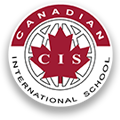
Projects bring a whole new enthusiasm to the classroom. The scope and breadth of projects can vary from days to weeks to months. Because students are engaged in projects that are “real” to them – about the real world, their world – their level of concentration and application increase, as do their learning results.
Students learn best when they are actively engaged in activities that are important and meaningful to them. Accomplishing a task independently constitutes learning. Brain research indicates that emotion is the gatekeeper to learning, intellectual functioning is greatly impacted by experience, and personal meaning is the key to memory. (Alberta Initiative for Student Improvement, 2004, p11)
Authentic Assessment, or Performance Assessment, refers to evaluating students throughout the whole learning process and not just at the end of a unit or semester. Students and teachers benefit from these frequent assessment opportunities because strengths and weaknesses are identified prior to the “final exam.” Teachers use standards-based assessment rubrics to evaluate the students learning process at the initial planning stage, the application stage, and the final end-product stage.
As they say in PBL, “The Question is the Answer” because questions and questioning are the forerunners of understanding. Engaging students in the learning process has astonishing consequences: attendance and academic achievement increase, and students’ overall positive interest in school and learning skyrocket.


